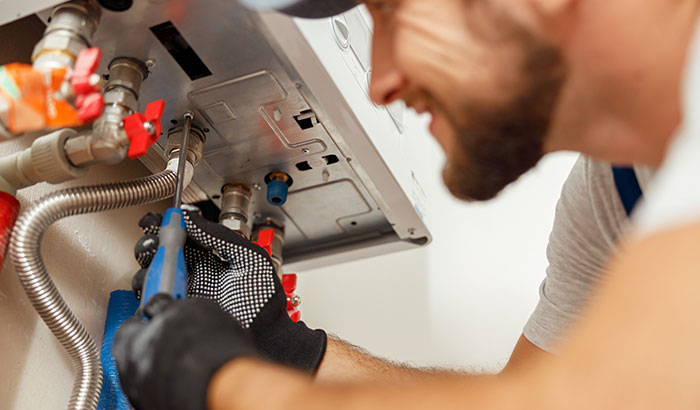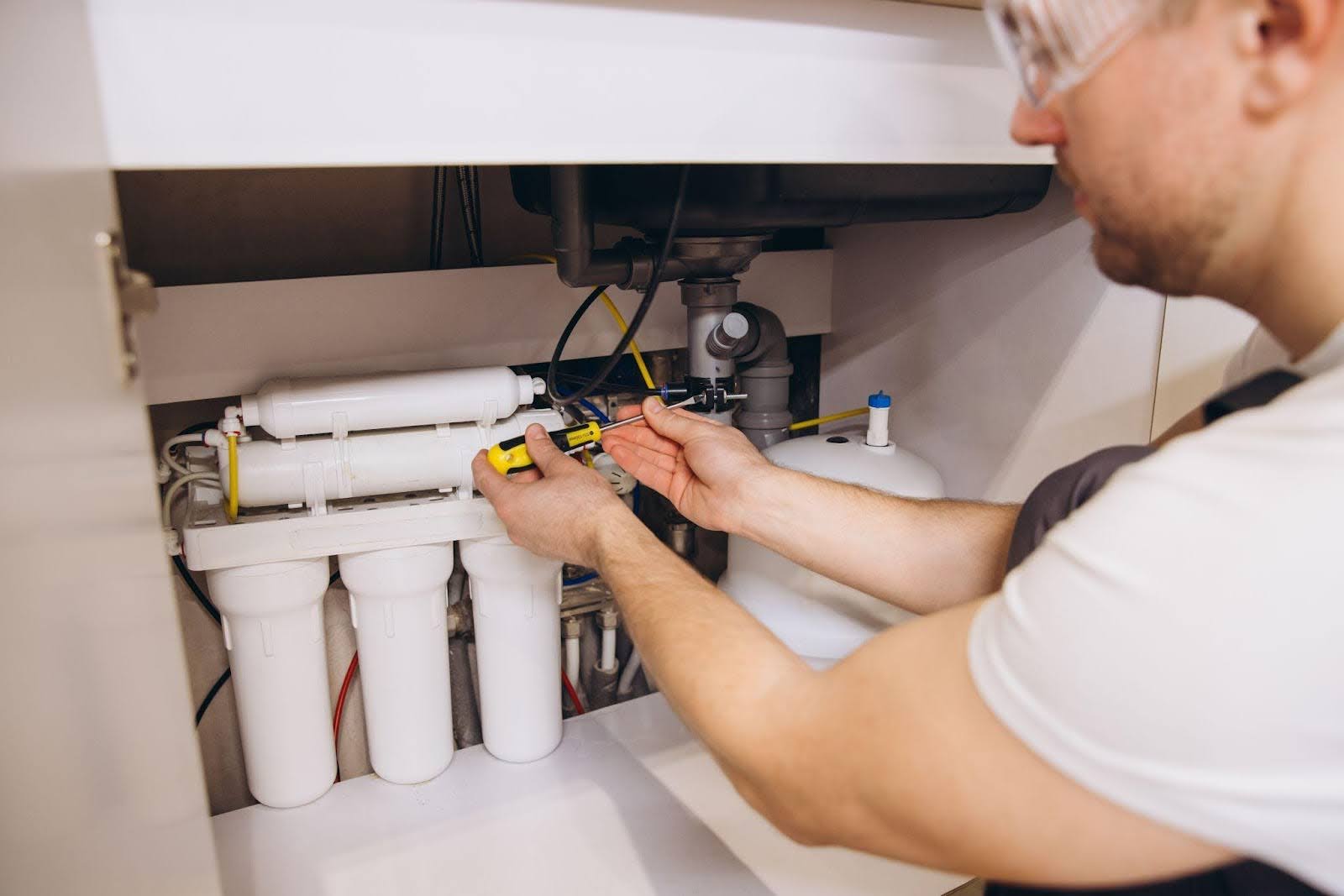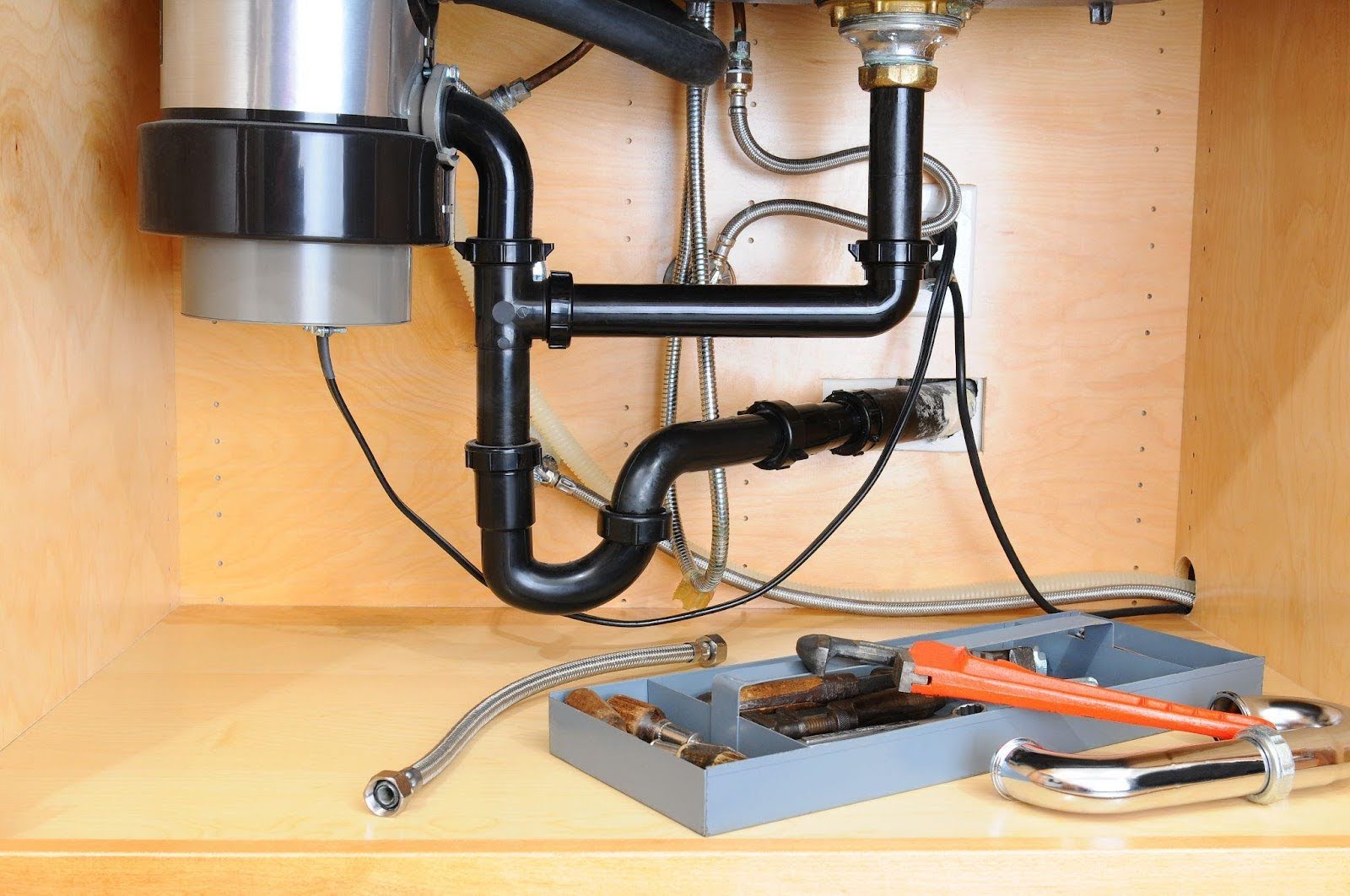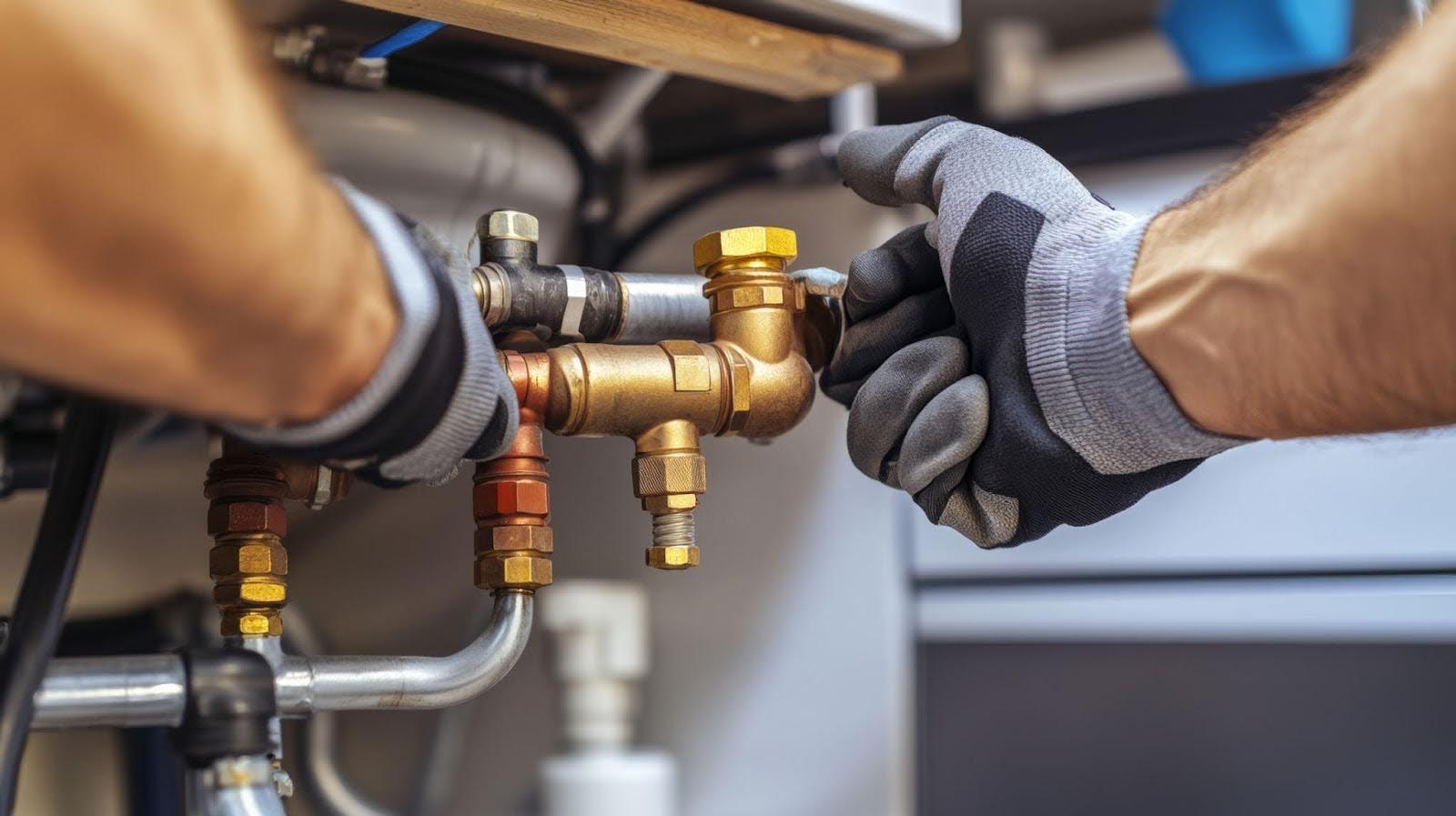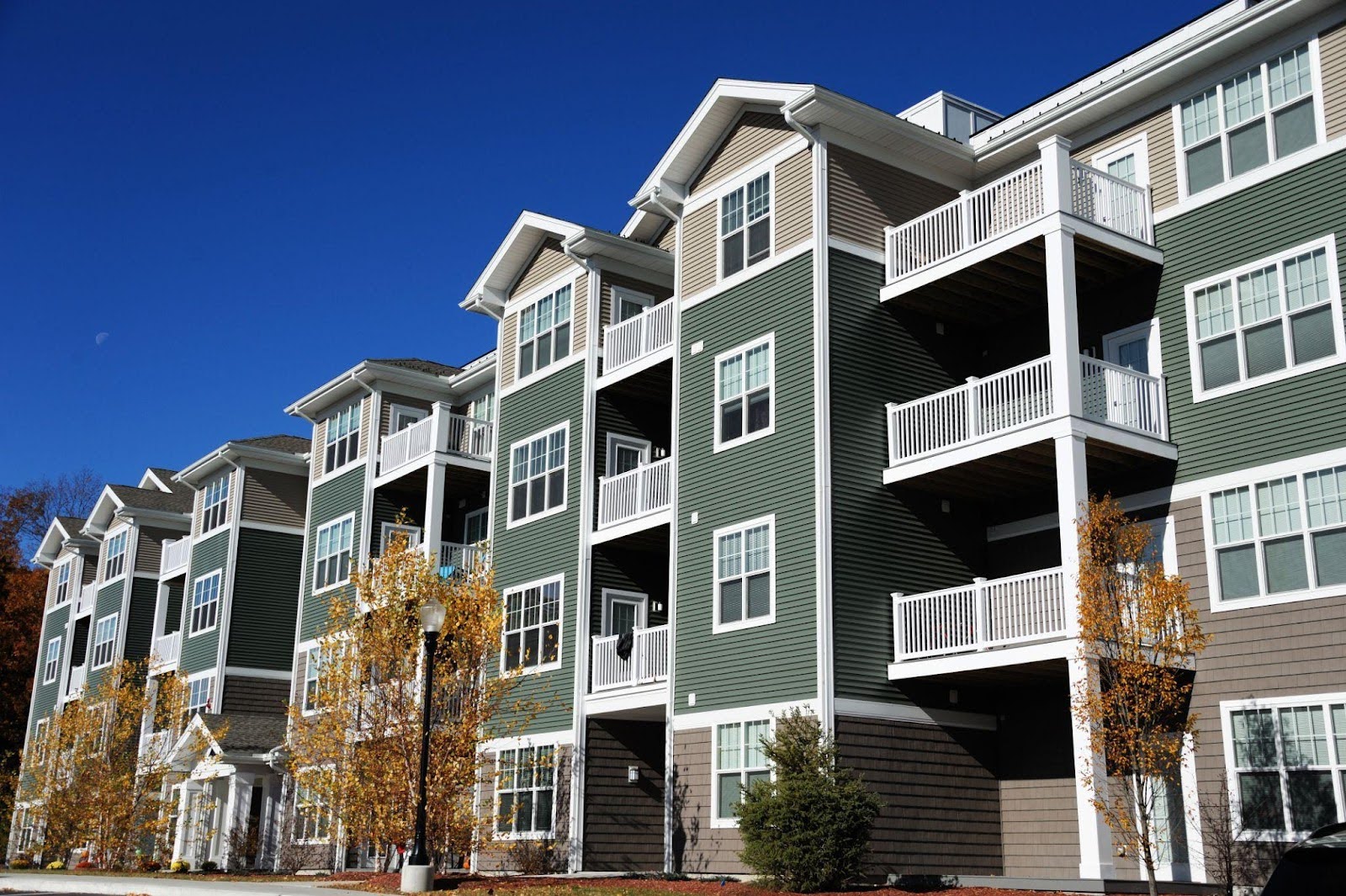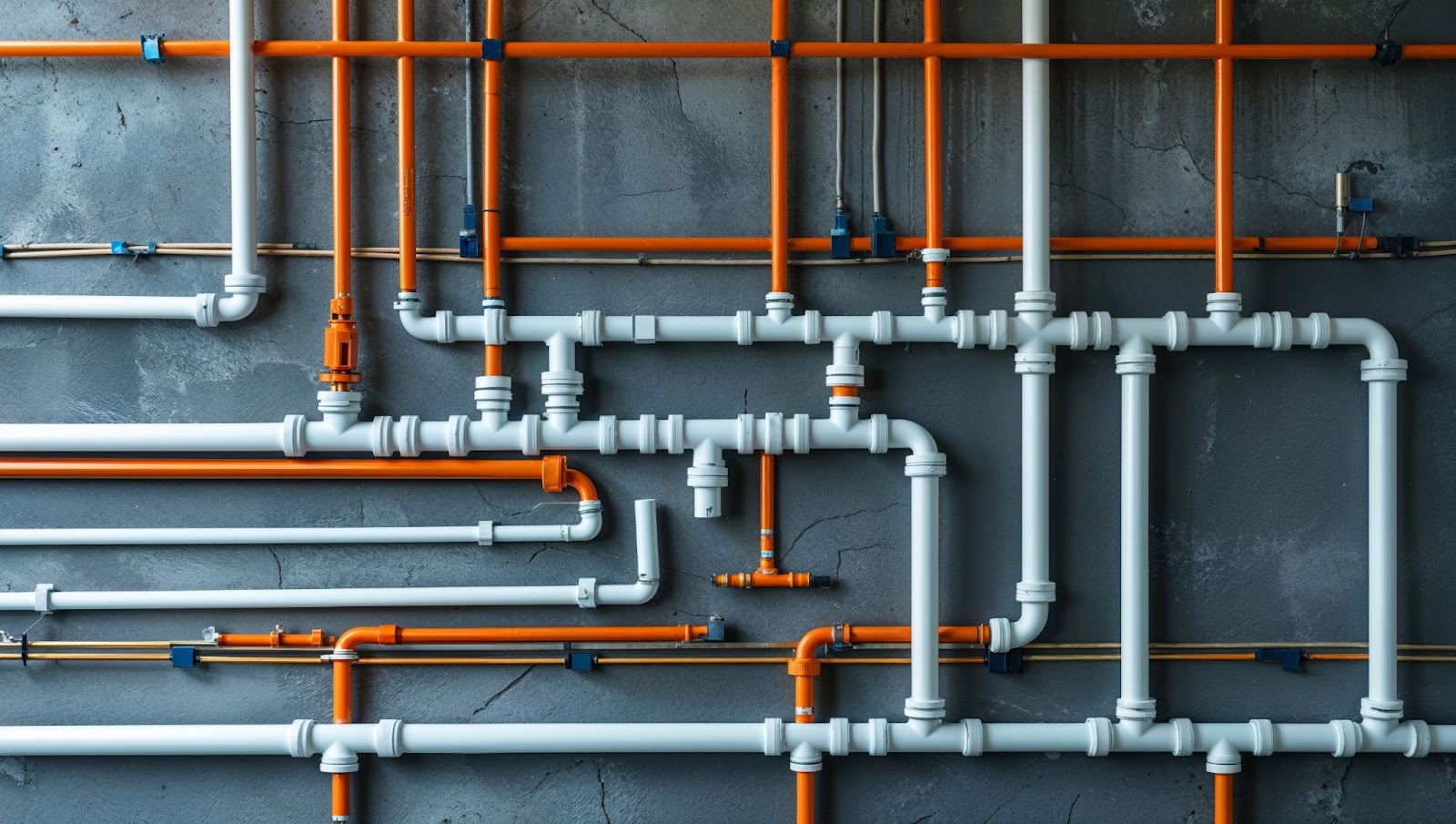Your water heater is essential to your home, but like anything else, it gets old and sometimes needs to be repaired. The average water heater lasts anywhere from eight to 12 years, but a water heater can malfunction at any time. So if you’ve lived in your home for a while but haven’t repaired your water heater, keep an eye on it!
Knowing the signs of when it’s time to repair your water heater will minimize hiccups and keep you and your family comfortable at home.
Today’s blog discusses water heaters, primarily the seven signs it’s time to repair your water heater. Keep reading to learn more.
How Does A Water Heater Work?
There are two types of water heaters – electric and gas – that pretty much function the same way. First, there’s a dip tube where cold water comes in. Then, that water is heated inside the tank and flows through the heat-out pipe to your water pipes.
In everyday life, water heaters are most often used for cooking, cleaning, showering/bathing, and space heating, making them essential for 21st-century living.
If you notice the signs that you should repair your water heater in time, you can salvage the situation and (hopefully) not be left without a water heater.
Signs to Repair Your Water Heater
Your water is cloudy, sandy, or rusty-looking.
- Corrosion produces discolored water and is a common problem for water heaters that have been around for a while. While this could initially alarm you, there’s no reason to panic.
- There’s a simple test to determine whether your water heater is the issue or whether the problem is coming from a different source, like your main water supply.
- You’ll want to run your cold tap water for several minutes to see if that water is discolored, as this indicates that the problem is not originating from the water heater. You might need a repair, but it’s likely unrelated to your water heater.
- However, the issue is likely with your water heater if you don’t see a rusty color in your cold tap water. A common cause of this is sediment building up in the tank.
- It’s possible to fix this issue by draining your water heater’s tank and cleaning out the sediment. But if the water is still discolored, the water heater will need to be replaced.
Not enough or no hot water.
- Are you noticing a lack of hot water in your home? If you’ve run the water for several minutes, but minimal or no hot water comes through the pipes, you have a problem.
- The problem could be your electrical thermostat, which should be between 120 to 140 degrees Fahrenheit. Readjusting your water heater could solve the problem.
- However, if it doesn’t, you could be looking at a broken heating element requiring a plumber’s assistance. The plumber can fix the problem, replace the parts, and restore hot water to your home in hours.
- The only caveat is if your water heater is past its prime. In that case, purchasing a new water heater might be cheaper than repeatedly repairing it.
The heating bill has gone up.
- This often happens in conjunction with number two, but it can happen on its own, too. For example, if your water heating bill is going up, this is a sign that something needs repair or replacement.
Strange noises are coming from the heater.
- Water heaters naturally make noise, but abnormal noises could indicate a problem. Having your water heater checked out is a good idea if you hear rumbling noises.
- One of the most common causes of noises in your water heater comes from the sediment we mentioned earlier. In this case, the sediment is banging against the tank. If not quickly taken care of, the residue can wear the water heater down and require replacement.
It is a leaking water heater.
- Leaking around the tank floor is a common sign that a water heater must be replaced. Not only is this an issue for the water heater, but it can also significantly damage your home, causing mold to grow or destroying your flooring.
- As a water heater gets old, the metal in the tank expands. The water heater can crack if it expands enough, causing the leak. At first, you can most likely repair it, but it will ultimately need to be replaced.
Multiple recent repairs.
- While it’s normal for a water heater to need repair occasionally, it’s not normal for it to need multiple repairs in a short time frame. This can quickly get expensive, making a replacement a potentially better solution.
Super old water heater.
- It’s not uncommon to purchase a house with a currently-working water heater that’s been around for a while. You might be looking at repairs or a replacement within a few years.
- You can determine your water heater’s age by looking at the manufacturing date near the serial number. The code here is alphabetized, with A for January and L for December. If you see “B11”, the water heater was manufactured in February 2011.
- Even if your water heater isn’t causing problems, you should have it looked at if it’s over ten years old. This is a great preventative measure to ensure your water heater lasts as long as possible.
Paying attention to these seven signs will keep your water heater running smoothly for years to come. You’ll know what to look for, even if you must replace your water heater.
Call Salisbury Plumbing
Are you noticing signs of a malfunctioning water heater? Call Salisbury Plumbing. Located in Lehi, Utah, and serving the surrounding areas, we provide free estimates and 24/7 emergency services. In addition to water heaters, Salisbury Plumbing also repairs water mains, garbage disposals, gas lines, burst water lines, and more.
If you need service in your home, call us at 385.375.1207, or contact us through our website. Salisbury Plumbing is here to repair your water heater and get you back to normal as quickly as possible! Call us today to schedule your appointment.
toto slot

